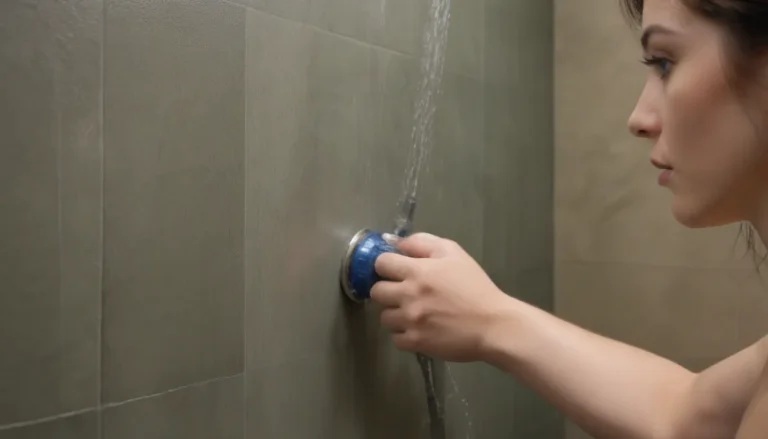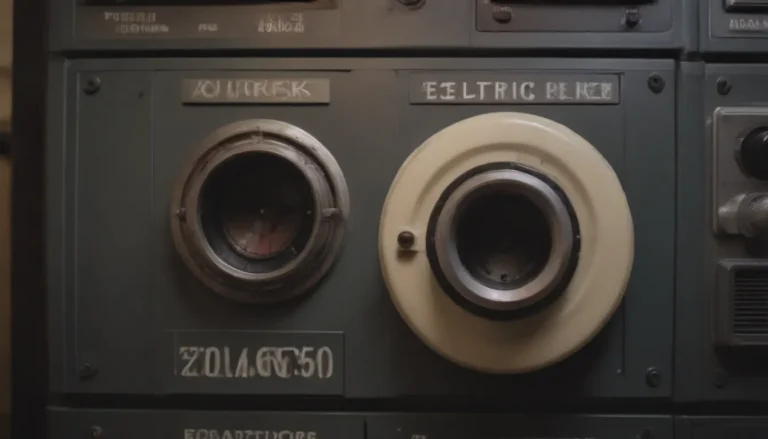Why Does Your Home Smell Like Rotten Eggs? 8 Potential Causes and Solutions

If you’ve walked into your home only to be greeted by the unmistakable smell of rotten eggs, you might have considered reaching for a candle to mask the odor. While candles can help, they do not solve the underlying issue causing the foul smell. It’s crucial to address the cause of the rotten egg smell in your home promptly, as it could indicate a serious problem. In this article, we will explore eight potential reasons why your house smells like rotten eggs and offer solutions to get rid of the unpleasant odor.
1. Natural Gas Leak
A natural gas leak is a serious issue that requires immediate attention if you detect a rotten egg smell in your home. Natural gas is odorless, but gas companies add a chemical called mercaptan to give it a distinct sulfur smell. If you suspect a natural gas leak, evacuate your home immediately and contact your gas utility company from outside. Do not attempt to locate the leak yourself or use any sources of ignition. Once the utility company confirms it is safe to reenter your home, you can investigate other possible causes of the smell.
2. Sewer Gas
Broken or clogged drain pipes can allow sewer gases to seep into your home, causing a rotten egg smell. Sewer gas can be hazardous as it contains methane, which is flammable in high concentrations. If you suspect sewer gas as the source of the odor, contact a plumber to inspect and repair the pipes.
3. Dried Drain Pipes
In bathrooms that are not used frequently, the water in the P-trap beneath the sink or tub can evaporate, allowing sewer gas to enter your home. Simply running water in the drain for a few minutes can refill the P-trap and eliminate the smell. If this does not resolve the issue, seek assistance from a plumber.
4. Well Water
Homes supplied with well water may experience a rotten egg smell due to hydrogen sulfide build-up, which occurs naturally in the ground. Testing your water by filling a container and allowing it to sit for a few hours can help identify if sulfur bacteria are the cause. Installing a carbon filter and reverse osmosis unit can help improve the quality of your water and eliminate the odor.
5. Gassy Drywall
Some homes built between 2001 and 2009 may have drywall imported from China that emits sulfur gases, leading to a rotten egg smell. Inspect your air conditioner’s copper coils for black ash-like residue, indicating sulfur emission. The only solution is to replace the affected drywall to eliminate the odor.
6. Water Heater
A malfunctioning water heater can also be a source of a rotten egg smell, particularly when hot water is running. Corroded anode rods in the water heater can produce a sulfuric odor. Contact a licensed plumber to replace the anode rod and address the issue.
7. Garbage Disposal
Food particles and debris can accumulate in your garbage disposal, leading to a foul smell in your kitchen. Running ice cubes or citrus peels through the disposal can help eliminate odors. Regular cleaning and maintenance of your disposal can prevent future smells.
8. Rotten Food
Sometimes, the simplest explanation is the correct one. Check your refrigerator for any expired or spoiled food that could be causing a rotten egg smell. Discard any items that are no longer safe to consume and clean the interior of your fridge thoroughly.
What to Do If Your House Smells Like Rotten Eggs
If you notice a rotten egg smell in your home, take action promptly to address the issue. Here are some steps you can take to eliminate the odor and ensure a safe environment for you and your family:
- Evacuate the premises: If you suspect a natural gas leak, leave your home immediately and contact your gas utility company.
- Seek professional help: Consult a plumber or HVAC technician to inspect and repair any broken pipes or malfunctioning appliances.
- Test your water: If you suspect well water as the source of the odor, consider testing your water quality and installing filtration systems.
- Practice good maintenance: Regularly maintain your appliances, drains, and water systems to prevent foul smells from arising.
- Eliminate sources: Conduct a thorough investigation to identify and remove any potential sources of the rotten egg smell.
By taking these proactive measures, you can address the cause of the unpleasant odor and ensure a fresh-smelling, safe home environment.
In Conclusion
A rotten egg smell in your home can be a cause for concern, but it is often solvable with the right approach. By identifying the source of the odor and taking appropriate action, you can eliminate the smell and prevent it from recurring. Whether it’s a natural gas leak, sewer gas, dried drain pipes, or another issue, addressing the problem promptly is essential for maintaining a healthy and comfortable living space. Remember to consult professionals when needed and prioritize your safety and well-being.





